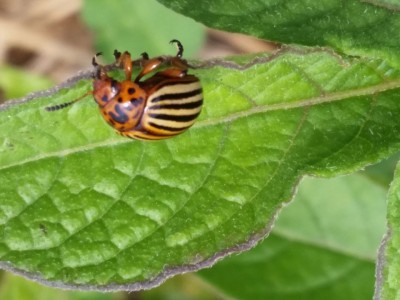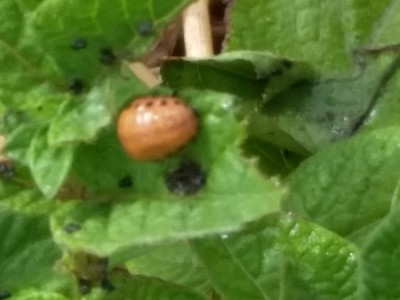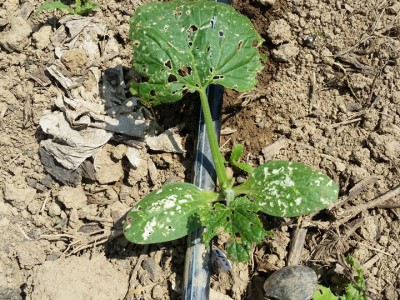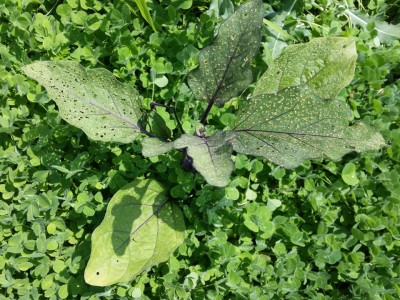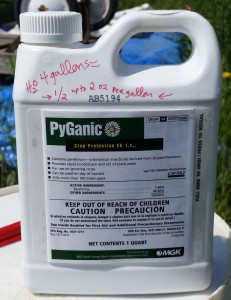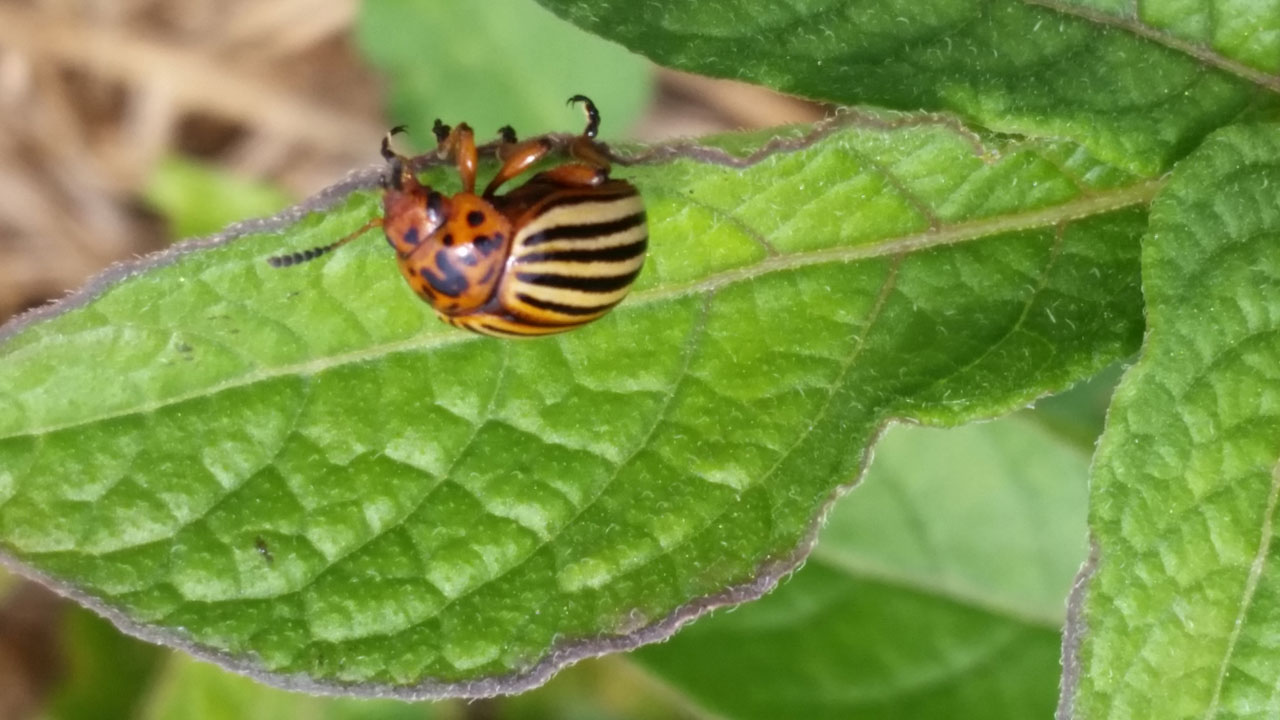
Small farms and organic farms have to make a lot of compromises. Some see not using industrial methods as a compromise of choosing the environment over production but that’s not the sort of compromise I’m talking about (and that isn’t so much of a struggle for me, where the choice seems obvious.) Rather, right now I’m talking about compromises of when we do have to use some of the more heavy-handed methods. When small farmers have to use a tractor instead of their draft horses for a job, or when all else has failed and organic pesticides are the only way to save a crop. The latter is happening to us at the farm right now.
- A mature Colorado Potato Beetle
- A larva of the Colorado Potato beetle, an awful bug that will annihilate Potatoes and some other nightshades like Eggplant. You don’t want this invasive species around!
We, and a lot of small organic farms, use what is called Integrated Pest Management at the farm. (for information on pest management strategies, look here) That means that spraying anything is our absolute last resort for managing pests. But unfortunately we have some nasty critters like the Colorado Potato Beetle, Squash Beetles, and Flea Beetles that are so well established here from a few years of less than perfect management strategies before Sarah got here that even intense crop rotation and other pest management has failed in defeating them in the last two years.
So we’ve been left with a lot of damage:
- June 30th
- Flea Beetle damage to Eggplant
This left us with nothing we could do besides spray something (organic of course), otherwise these crops will be completely lost. Spraying always risks killing beneficial insects like ladybugs and lacewings, but not spraying will increase the chances of these bad bugs not only ruining this year’s crop, but surviving years to come and continuing to destroy food.
We chose to spray PyGanic, pictured at the right. Also, we stuck to the lowest concentration that we could that would kill the potato, squash, and flea beetles and least risk killing any beneficial insects. The damage on the potatoes has not yet gotten so out of hand that we needed to spray more than the plants affected, but given the ubiquitous damage done to our squash and eggplant, those crops had to be sprayed equally ubiquitously.
It’s unfortunate we had to spray this week, but we have to sometimes make compromises. I think about some of the huge sprayers I’ve seen, indiscriminately covering fields with fossil-fuel based pesticides that will kill more bees, butterflies, and even some birds more than they will the actual pests, and I remember that it’s better to make compromises than to give in.
-Joe Ingrao, Excel Scholar Summer 2014
